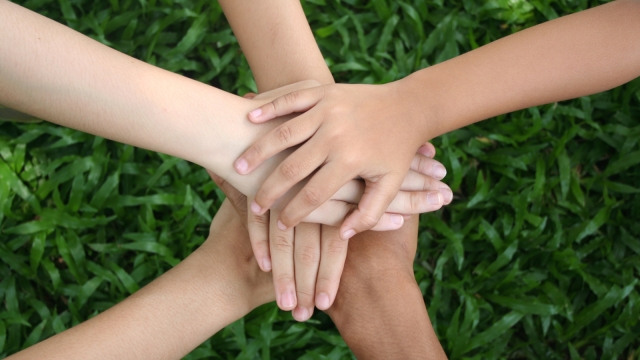HRC Marks World Mental Health Day 2018

HRC marks World Mental Health Day by reaffirming our commitment to support the well-being of LGBTQ youth who are too often made to feel hopeless and alone simply for being who they are.
Many LGBTQ young people experience family rejection, bullying and harassment, or feel unsafe for simply being who they are, all of which can be added risk factors for anxiety and mood disorders. These risks are compounded for LGBTQ youth of color at the intersections of racism, transphobia, biphobia and homophobia.
HRC and the University of Connecticut’s 2018 LGBTQ Youth Report reaffirmed that, sadly, mental health disparities between LGBTQ youth and non-LGBTQ youth continue to widen, an alarming trend that we must work together to address.
“A stranger, even a school counselor, is very dangerous to LGBTQ+ people and children,” wrote an agender, 16-year-old who responded to the survey. “They can ruin your entire life, get you kicked out of your home by your parents, or make other teachers treat you awfully and make your school experience miserable. They can even get you killed by outing you without your permission, which they are usually ‘expected’ to do.”
Among more than 12,000 respondents, ranging in age from 13 to 17:
- More than 70 percent reported feelings of worthlessness and hopelessness in the past week;
- Only 26 percent of youth said they always feel safe in their school classrooms — and just 5 percent said that all of their teachers and school staff are supportive of LGBTQ people;
- Just 31 percent of trans youth surveyed said that they can express themselves in a way that completely reflects their gender identity in school;
- Only 11 percent of youth of color surveyed believe their racial or ethnic group is regarded positively in the U.S.;
- Sixty-eight percent of bisexual youth report being teased or treated poorly at school because of their sexual orientation.
Access to culturally-competent, LGBTQ-affirming mental health providers — both within schools and in the broader health care system — is essential to the well-being of LGBTQ teens. Every mental health and medical professional can play a role in changing the landscape for LGBTQ youth by reinforcing inclusive, supportive and loving environments in homes, schools and communities.
Reducing these alarming statistics starts by having open, honest discussions about mental health with young people, a key step to reducing stigma and empowering them to seek help and support when needed. And we must continue to chip away at the societal bias, discrimination and rejection that place LGBTQ youth at high risk of compromised mental health.
If you’re a young LGBTQ person and need to talk to someone, call The Trevor Project’s 24-hour crisis hotline for youth at 1-866-488-7386. If you are a transgender person of any age, call the Trans Lifeline at 877-565-8860.
To learn more about supporting LGBTQ youth in their homes, schools and communities, visit www.hrc.org/youth.
www.hrc.org/blog/hrc-marks-world-mental-health-day-2018?utm_source=rss&utm_medium=rss-feed
You Might Like
